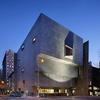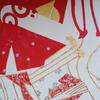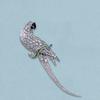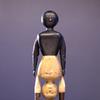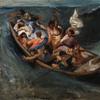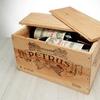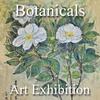The Colonial Williamsburg Foundation Acquires Rare Paul Revere Tankard
- WILLIAMSBURG, Virginia
- /
- August 17, 2021
The Colonial Williamsburg Foundation has added to its renowned American and British silver collection a rare tankard made ca. 1795 by America’s best-known colonial silversmith, Paul Revere (1734-1818) of Boston, Massachusetts. Originally used as communal drinking vessels, tankards are among the largest forms produced in Revere’s shop. Approximately three dozen Revere tankards are known, and this one is typical of those from the 1790s, with tapering sides, midband, tall domed lid and pinecone form finials.
“Colonial Williamsburg has long sought a significant example of Revere’s work,” said Ronald L. Hurst, the Foundation’s Carlisle H. Humelsine chief curator and vice president for museums, preservation and historic resources. “With its impressive size, fine detail, and excellent condition, this tankard fills a significant void in our American silver holdings.”
A beloved American patriot, Revere is well known for his activities during the Revolutionary War. Widely recognized as an exceptional colonial silversmith, Revere also engraved prints and bookplates, ran an import business, established a bell and cannon foundry and started the first successful copper rolling mills in the new nation. Many of the objects made in his silver shop are well documented today due to the survival of his record books.
Colonial Williamsburg’s Revere tankard stands nearly 10 inches tall and holds 48 ounces of liquid (usually wine, ale or cider), making it weighty to lift when full. Its apparent size is enhanced by a stepped domed lid and an elongated finial. The tankard has a lighter appearance thanks to its scrolled openwork thumbpiece. It lacks engraving, which leaves the identity of the original owner a mystery. Details such as the decorative features and the substantial weight (nearly 34 troy ounces) may one day provide ownership clues through careful study of Revere’s shop records.
“Paul Revere is the best-known and most celebrated American silversmith,” said Janine E. Skerry, Colonial Williamsburg’s senior curator of metals. “A large, eye-catching object such as this tankard is a great way to connect with the public and draw both children and adults into the story of this amazing material and its role in our early history.”
This Revere tankard was acquired entirely through the generosity of The Friends of Colonial Williamsburg Collections. It is now on view along with a ca. 1765 Revere silver porringer, another recent acquisition from the Joseph H. and June S. Hennage bequest announced earlier this year. Both objects are found in the exhibition Silver from Mine to Masterpiece in the Margaret Moore Hall Gallery at the DeWitt Wallace Decorative Arts Museum, one of the newly expanded Art Museums of Colonial Williamsburg.
Additional information about the Art Museums and Colonial Williamsburg as well as tickets are available online at colonialwilliamsburg.org, by calling (855) 296-6627 and by following Colonial Williamsburg on Facebook and @colonialwmsburg on Twitter and Instagram.
About the Art Museums of Colonial Williamsburg
The Art Museums of Colonial Williamsburg include the Abby Aldrich Rockefeller Folk Art Museum and the DeWitt Wallace Decorative Arts Museum, both of which are housed in their newly expanded building that offers an additional 65,000-square-feet of space, 25-percent more gallery space and numerous enhancements to the visitor experience. The Abby Aldrich Rockefeller Folk Art Museum is home to the nation’s premier collection of American folk art, with more than 7,000 folk art objects made up to the present day. The DeWitt Wallace Decorative Arts Museum exhibits the best in British and American fine and decorative arts from 1670–1840. The Art Museums of Colonial Williamsburg are located at 301 South Nassau Street in Williamsburg, Va. Open daily from 9:00 A.M. to 6:00 P.M.
About The Colonial Williamsburg Foundation
Colonial Williamsburg operates the world’s largest living history museum, preserving Virginia’s 18th-century capital as a fully functioning city. Fun, engaging experiences transport guests back in time and highlight the relevance of America’s founding era to contemporary life. The Colonial Williamsburg experience includes more than 600 restored or reconstructed buildings, historic trade shops, renowned museums of decorative arts and folk art, extensive educational outreach programs for students and teachers, lodging, culinary options from historic taverns to casual or elegant dining, the Golden Horseshoe Golf Club featuring 45 holes designed by Robert Trent Jones Sr. and his son Rees Jones, a full-service spa and fitness center managed by Trilogy Spa, pools, retail stores and gardens. Philanthropic support and revenue from admissions, products and hospitality operations sustain Colonial Williamsburg’s educational programs and preservation initiatives. The Colonial Williamsburg Foundation is a 501 (c)(3) nonprofit organization; philanthropic support and revenue from admissions, products and operations sustain its educational programs and preservation initiatives.
# # #
Contact:
Robyn LiverantRobyn Liverant Public Relations
robyn@robynliverant.com

100x100_c.jpg)

